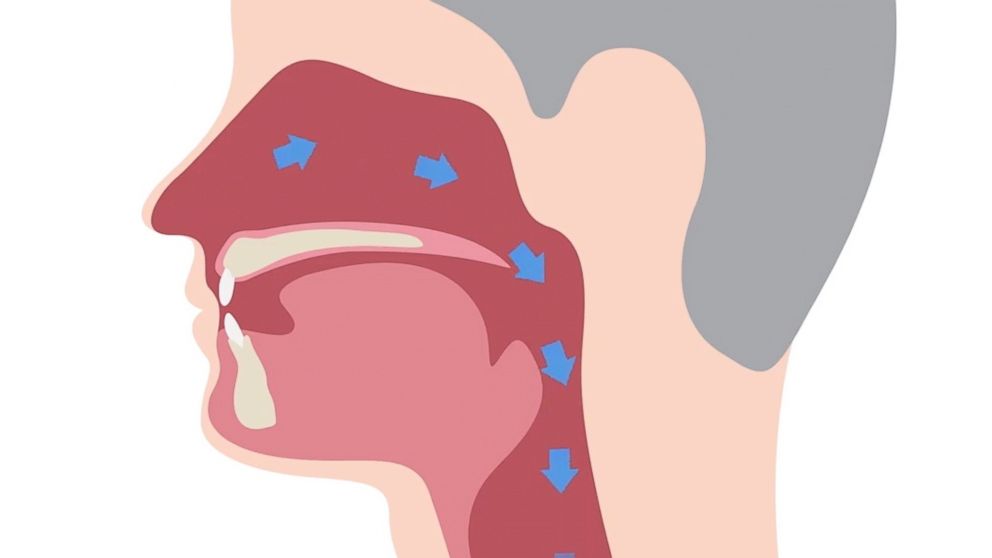
The Science Behind Nasal Breathing and Health
Posted by dan barnes on
Breathing is the most fundamental act of life, yet its importance is often overlooked. The way we breathe—through the nose or the mouth—can have profound effects on our health and well-being. In recent years, nasal breathing has gained attention not just for its role in respiratory health, but also for its broader impacts on the body’s overall function. In this blog, we’ll explore the science behind nasal breathing, why it’s superior to mouth breathing, and how it influences various aspects of health.
The Anatomy of Nasal Breathing
The human nose is a complex organ designed specifically for breathing. It serves several critical functions:
1. Air Filtration: The nose is equipped with tiny hairs (cilia) and mucus membranes that trap dust, allergens, and pathogens, preventing them from entering the lungs. This filtering system helps reduce the risk of respiratory infections and keeps the airways clean.
2. Humidification and Warming: As air passes through the nasal passages, it is humidified and warmed to body temperature. This process prevents irritation of the respiratory tract and makes breathing more comfortable, especially in cold or dry environments.
3. Olfaction (Sense of Smell): The nose houses the olfactory receptors responsible for our sense of smell. This not only contributes to our ability to enjoy food and detect hazards but also plays a role in emotional and memory processing.
4. Production of Nitric Oxide: One of the most significant benefits of nasal breathing is the production of nitric oxide (NO), a molecule that is essential for cardiovascular health. Nitric oxide helps dilate blood vessels, improving blood flow and oxygen delivery to tissues throughout the body.
The Science-Backed Benefits of Nasal Breathing
1. Enhanced Oxygen Uptake and Utilization
• Nasal breathing allows for a slower, more controlled intake of air. This controlled breathing pattern leads to better oxygen absorption in the lungs, as the slower flow of air gives the lungs more time to extract oxygen. Improved oxygenation supports higher energy levels, better concentration, and enhanced physical performance.
2. Cardiovascular Health
• The nitric oxide produced during nasal breathing has a vasodilatory effect, meaning it helps widen blood vessels and improve circulation. This process lowers blood pressure and enhances the delivery of oxygen and nutrients to cells, supporting overall cardiovascular health. In contrast, mouth breathing bypasses this nitric oxide production, which can limit its cardiovascular benefits.
3. Improved Sleep Quality
• Nasal breathing plays a crucial role in regulating sleep. By keeping the airways open and maintaining a steady breathing pattern, nasal breathing reduces the likelihood of snoring and sleep apnea. This leads to deeper, more restorative sleep cycles, which are essential for physical recovery, memory consolidation, and overall well-being.
4. Immune System Support
• The nasal passages are the body’s first line of defense against airborne pathogens. By filtering out harmful particles and producing nitric oxide, nasal breathing helps protect the respiratory system from infections and boosts the immune response. This filtering mechanism is absent in mouth breathing, which increases the risk of illness.
5. Oral and Dental Health
• Mouth breathing often leads to dry mouth, which creates an environment conducive to the growth of harmful bacteria. This can result in bad breath, tooth decay, and gum disease. Nasal breathing helps maintain the mouth’s natural moisture balance, supporting better oral hygiene and reducing the risk of dental problems.
6. Cognitive Function and Mental Clarity
• The brain is highly sensitive to changes in oxygen levels. By optimizing oxygen delivery, nasal breathing can enhance cognitive function, improve focus, and reduce symptoms of anxiety and stress. The rhythmic nature of nasal breathing also has a calming effect on the nervous system, promoting relaxation and mental clarity.
The Risks of Chronic Mouth Breathing
While nasal breathing offers numerous benefits, chronic mouth breathing can have several negative effects:
• Increased Snoring and Sleep Apnea: Mouth breathing often leads to snoring and can exacerbate conditions like sleep apnea, which interrupts sleep and can have serious health consequences.
• Poor Posture and Facial Development: In children, chronic mouth breathing can affect facial development, leading to a longer face, narrow palate, and misaligned teeth. In adults, it can contribute to poor posture and related health issues.
• Higher Risk of Respiratory Infections: Mouth breathing bypasses the nose’s filtering system, making it easier for pathogens to enter the respiratory system, increasing the risk of infections.
• Decreased Exercise Performance: Mouth breathing during exercise can lead to rapid, shallow breaths that are less effective in oxygenating the blood, reducing stamina and performance.
Encouraging Nasal Breathing
If you’re accustomed to mouth breathing, it’s possible to retrain yourself to breathe through your nose, both during the day and while you sleep. Here are some tips:
1. Practice Breathing Exercises: Techniques like diaphragmatic breathing, alternate nostril breathing, and the Buteyko method can help you develop better nasal breathing habits.
2. Use Mouth Tape: Products like Lip Grip can be used to gently keep your mouth closed while you sleep, encouraging nasal breathing and helping you transition away from mouth breathing.
3. Address Nasal Congestion: If congestion is an issue, consider using saline sprays, decongestants, or a humidifier to keep your nasal passages clear. Allergies and sinus issues should also be managed to facilitate nasal breathing.
4. Focus on Posture: Good posture can help open the nasal passages and support proper breathing. Practice maintaining a straight spine and relaxed shoulders, especially during activities like working at a desk or exercising.
The science behind nasal breathing is clear: it offers significant health benefits that go beyond just improved respiration. From enhanced cardiovascular health to better sleep and cognitive function, nasal breathing is a simple yet powerful way to support your body’s overall well-being. If you’re currently a mouth breather, consider taking steps to transition to nasal breathing, using tools like Lip Grip to help you along the way. Embrace the science of nasal breathing and experience the positive impact it can have on your health.
